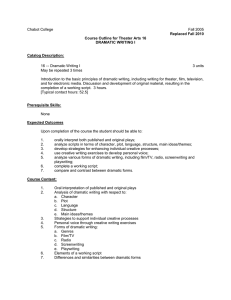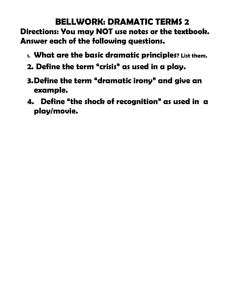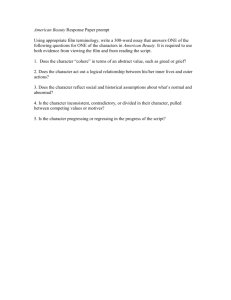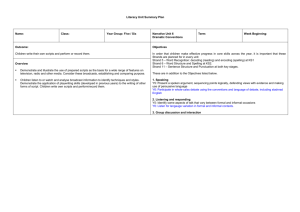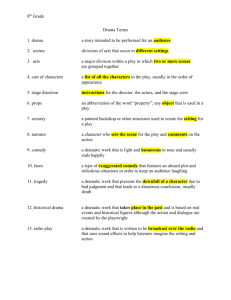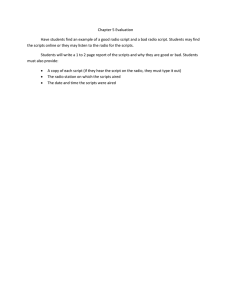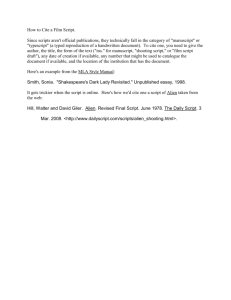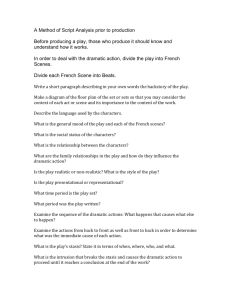--
advertisement
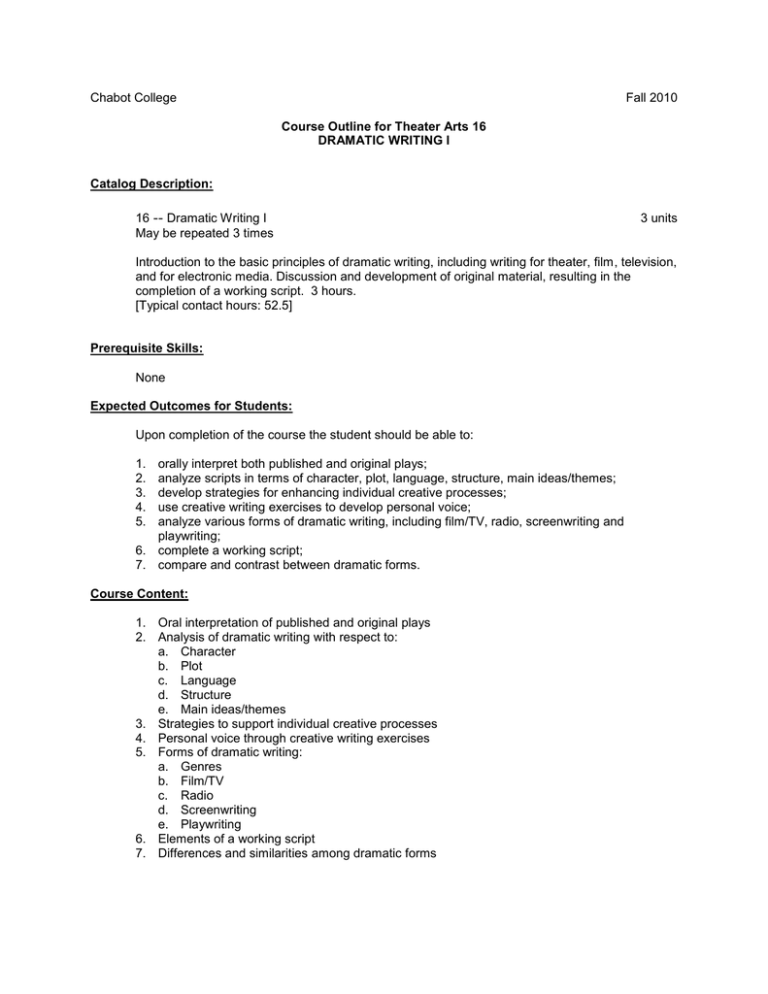
Chabot College Fall 2010 Course Outline for Theater Arts 16 DRAMATIC WRITING I Catalog Description: 16 -- Dramatic Writing I May be repeated 3 times 3 units Introduction to the basic principles of dramatic writing, including writing for theater, film, television, and for electronic media. Discussion and development of original material, resulting in the completion of a working script. 3 hours. [Typical contact hours: 52.5] Prerequisite Skills: None Expected Outcomes for Students: Upon completion of the course the student should be able to: 1. 2. 3. 4. 5. orally interpret both published and original plays; analyze scripts in terms of character, plot, language, structure, main ideas/themes; develop strategies for enhancing individual creative processes; use creative writing exercises to develop personal voice; analyze various forms of dramatic writing, including film/TV, radio, screenwriting and playwriting; 6. complete a working script; 7. compare and contrast between dramatic forms. Course Content: 1. Oral interpretation of published and original plays 2. Analysis of dramatic writing with respect to: a. Character b. Plot c. Language d. Structure e. Main ideas/themes 3. Strategies to support individual creative processes 4. Personal voice through creative writing exercises 5. Forms of dramatic writing: a. Genres b. Film/TV c. Radio d. Screenwriting e. Playwriting 6. Elements of a working script 7. Differences and similarities among dramatic forms Chabot College Course Outline for Theater Arts 16, Page 2 Fall 2010 Methods of Presentation: 1. 2. 3. 4. Live coaching of scenes and monologues in progress Demonstration Lecture/discussion Film, video, and/or audio-taped examples of scenes Assignments and Methods for Evaluating Student Progress: 1. Typical Assignments: a. Write a narrative (treatment) of an original script idea (2-5 pages) b. Bring in samples of dialogue from original scripts c. Share entire script with class d. Re-write script and share with class e. Participate in free-writes f. Complete dialogue exercises, converting prose to dialogue g. Document the sensual inventory of material h. Write critiques of others’ work 2. Methods of Evaluating Student Progress: a. Assignments b. Attendance c. Written evaluation of students’ scripts d. Final examination Textbooks: Backwards and Forwards – A technical manual for reading plays; Ball, David: Southern Illinois University Press, 2005 Special Student Materials: None RLP g:\Curriculum2005\TheaterArts16 Revised: kk 11/19/04, 11/21/09 cp
